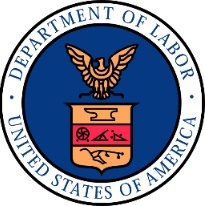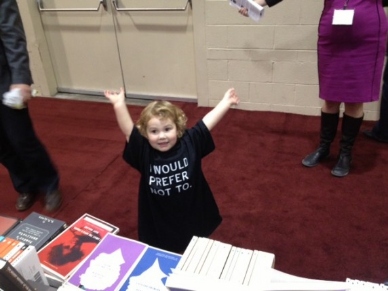July 25, 2014
The Department of Labor picks “Bartleby the Scrivener” for its “Books That Shaped Work in America” list
by Sal Robinson

The Department of Maybe Not Being So Terribly Interested in Being a Blacksmith After All? Image via Wikipedia.de
The Department of Labor, begrudgingly founded by William Howard Taft on the last day of his presidency, turned 100 last year and celebrated by compiling a reading list of “Books That Shaped Work in America.”
Among the books recommended by journalists, authors, employees of the DOL (including the current Secretary of Labor, Thomas Perez) and regular readers is Herman Melville’s classic novella of not laboring, Bartleby the Scrivener, which appears on their site in our house’s edition (thanks, DOL! we like to eat too).
Fittingly, the recommendation came not from a government employee, but from an anonymous member of the public, who wrote in with a summary of the book and this analysis of it, which seems like it might ruffle some federal hairdos:
The thought that one’s employee might have a preference, that is, have a mind, a soul and body independent of his employment is one that would knock the pins out from under any hierarchical form of labor, communist, capitalist, slave or military.
It’s heartening to see Bartleby (who, according to the novella’s narrator, is rumored to have begun his curious career at the Dead Letter Office in Washington) alongside other picks, which range from the familiar greats — “Death of a Salesman,” The Grapes of Wrath, Let Us Now Praise Famous Men, How the Other Half Lives, The Jungle — to newer standards — Nickel and Dimed, Stud Terkel’s Working, The Big Short — to the predictably awful — William Bennett’s Book of Virtues, The Fountainhead, The Seven Habits of Highly Effective People.
For each book, the DOL has given a rationale for the choice, and in Bartleby‘s case, it’s especially satisfying: a sidebar with the question “What does this book have to do with the Department of Labor?” takes you to “Statistics — Productivity” section of their website. Where, presumably, buried somewhere under a subtopic heading, there’s a page that reads only “Got Absolutely Nothing Done Today, Thank You.”
In addition, the list-compilers point out the connection between Bartleby and the Occupy Wall Street movement, calling the book “the first great protest against Wall Street and the economy of the 1%,” a connection that has been made eloquently by English professor Jonathan D. Greenberg in a 2012 article for the Atlantic, “Occupy Wall Street’s Debt to Melville,” and also cutely by a toddler we met at last year’s MLA conference:

Look at that kid! She’s the living embodiment of joyful resistance. Or possibly just wants to be picked up?
Carl Fillichio, senior adviser for public affairs and communications at the DOL, came up with the idea for the list in the first place, and another one of his picks is also close to our hearts, though he does have a surprising take on it. From an NPR interview with Jennifer Ludden:
LUDDEN: Do you have a personal favorite on the list?
FILLICHIO: “Moby Dick.” It’s about this guy whose job is to catch the whale. The workplace is the boat. And it’s all about his drive, his determination, office politics, if you will, and a result.
LUDDEN: In a very small office out there in the sea.
FILLICHIO: In a very small office, yeah.
Sal Robinson is an editor at Melville House. She's also the co-founder of the Bridge Series, a reading series focused on translation.